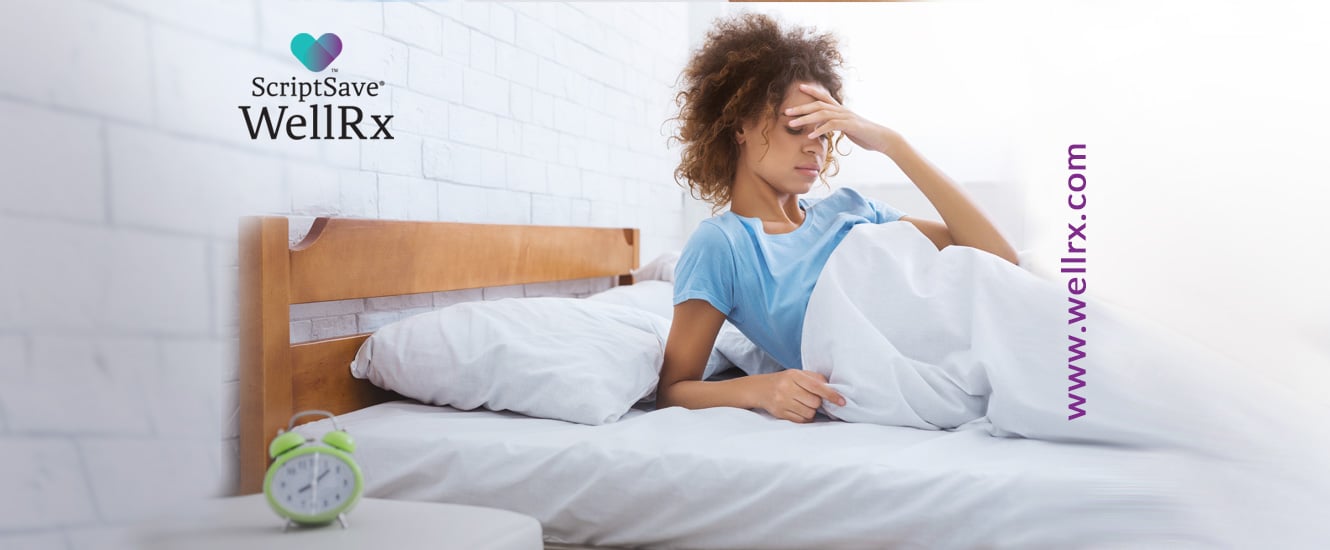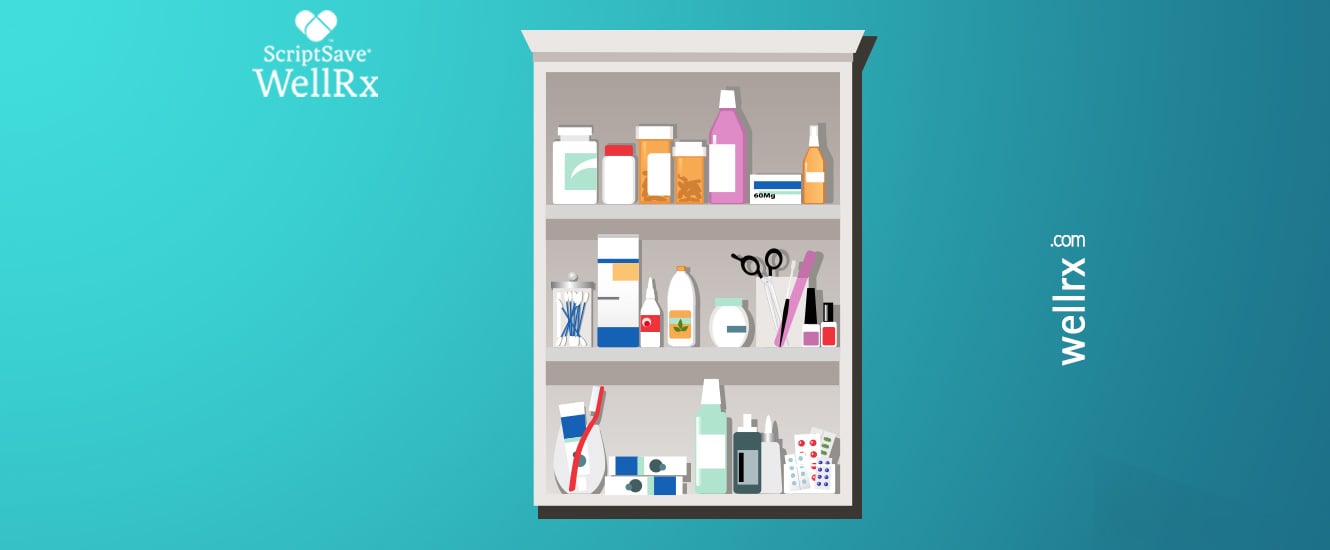According to the American Sleep Association, insomnia is the most common sleep disorder, and 10% of Americans report that they have chronic insomnia. Insomnia is the inability to fall asleep or to stay asleep. Some people have difficulty falling asleep when they go to bed, while others can fall asleep but are not able to sleep through the night. Still, others wake early in the morning and are not able to return to sleep.
If you have insomnia, you may have tried over-the-counter sleep aids or lifestyle changes to help you sleep. If these methods do not work, your doctor may prescribe a medication that treats insomnia.
Several types of medications are used to treat insomnia. Some are prescribed specifically for insomnia; some medications that may be prescribed for other conditions cause drowsiness and can be used for sleep. Prescription medications used to treat insomnia include the following:
Benzodiazepines slow down brain activity to promote sleep. Medications in this class include:
Because they are long-acting, both temazepam and estazolam can help you fall asleep as well as stay asleep. Triazolam works better to help you fall asleep. Benzodiazepines used for insomnia are indicated for short-term use. You should consult your doctor if your sleep problems are not resolved within 7 to 10 days. Benzodiazepines have the potential for abuse and dependence, and you should not use more than your doctor prescribes.
Some older antidepressants called tricyclic antidepressants cause drowsiness and can help with sleep. Medications in this category include the following:
Trazadone is used in low doses to treat insomnia, and doxepin helps if you have trouble staying asleep.
Non-benzodiazepine sleep medications were developed as an alternative to sleep aids that may cause dependence or addiction. Medicines in this category include the following:
- zolpidem (Ambien, Edluar, Intermezzo)
- zaleplon (Sonata)
- eszopiclone (Lunesta)
Zolpidem is available as immediate-release (Ambien) and controlled-release (Ambien CR) formulations. The immediate-release version helps you fall asleep. The controlled-release formulation enables you to fall and stay asleep through the night. One layer of the tablet releases the medication immediately, while the second layer releases the drug slowly and is effective for 3 to 6 hours after you take the medication.
Zaleplon (Sonata) works rapidly and has a short duration of action, which makes it ideal for helping you fall asleep again if you tend to wake up in the middle of the night.
Eszopiclone (Lunesta) can be used for long-term treatment of insomnia. It has a long half-life, meaning that it stays in your body for a long time. You should use Lunesta only if you have at least 7 to 8 hours available to sleep.
Rozerem is a melatonin agonist that helps you fall asleep faster if you have trouble falling asleep. Rozerem works similarly to your body’s natural melatonin, which lets your brain know when it is time for sleep.
Belsomra is in the category of drugs known as orexin receptor antagonists. Orexin is a substance in your body that helps regulate wakefulness. Belsomra enables you to fall and stay asleep by blocking the action of orexin.
Dayvigo was approved by the Food and Drug Administration in December 2019 for the treatment of insomnia. Dayvigo is an orexin receptor antagonist like Belsomra. The manufacturers of this drug believe that it may be especially helpful for seniors with sleep problems related to Alzheimer’s disease because it does not have side effects that affect memory.
You should not drink alcohol or take other medicines that cause drowsiness if you are taking medications for sleep. Take your sleep medication shortly before you are ready to go to sleep, and do not drive or do anything that requires alertness after you take your sleeping pill. Be sure you have at least 7 hours available to sleep after you take your sleep medication to avoid drowsiness and difficulty waking in the morning. Never take more medication than your doctor prescribes.
Many insurance plans pay for sleep medications. You can ask your pharmacist or your insurance company if your plan covers your sleep medicine. If your insurance does not cover your medication, you can use a prescription discount card to get the lowest prescription price at a pharmacy near you.
Prescription discount cards offer prescription savings when your insurance does not cover your medication or when the price with insurance is higher than the cost with a prescription savings card. Using a free Rx savings card can save you up to 80% or more off the retail price. You can use a ScriptSave WellRx discount card for the best discount at a pharmacy near you.
Rosanna Sutherby is a freelance medical writer who has been a practicing pharmacist in her community for close to 20 years. She obtained her Doctor of Pharmacy from Nova Southeastern University in Ft. Lauderdale, FL. She utilizes her clinical training in the pharmacy, where she helps patients manage disease states such as asthma, diabetes, heart disease, hypertension, and many others. Dr. Sutherby reviews and recommends drug regimens based on patients’ concurrent conditions and potential drug interactions.
References:
https://www.sleepassociation.org/about-sleep/sleep-statistics/
https://www.ncbi.nlm.nih.gov/pmc/articles/PMC4634348/
https://www.mayoclinic.org/diseases-conditions/insomnia/in-depth/sleeping-pills/art-20043959
https://medlineplus.gov/druginfo/meds/a684003.html
https://medlineplus.gov/druginfo/meds/a684004.html
https://medlineplus.gov/druginfo/meds/a691003.html
https://medlineplus.gov/druginfo/meds/a681038.html
https://www.accessdata.fda.gov/drugsatfda_docs/label/2010/022036lbl.pdf
https://www.accessdata.fda.gov/drugsatfda_docs/label/2016/021774s018lbl.pdf
https://www.accessdata.fda.gov/drugsatfda_docs/label/2014/021476s030lbl.pdf
https://www.merck.com/product/usa/pi_circulars/b/belsomra/belsomra_pi.pdf
https://www.accessdata.fda.gov/drugsatfda_docs/label/2019/212028s000lbl.pdf













 Store & manage your medication list
Store & manage your medication list Medication pricing updates
Medication pricing updates Pill & refill reminders
Pill & refill reminders Medication journal & mood log
Medication journal & mood log